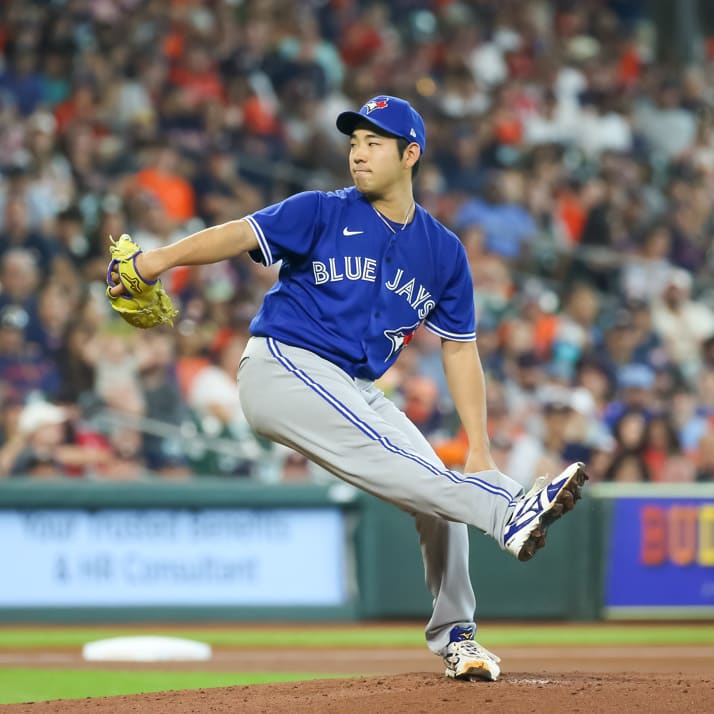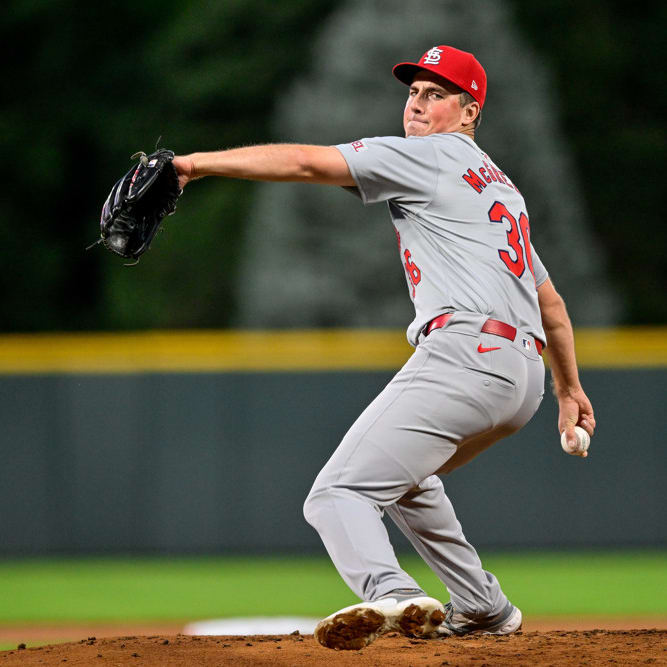This article is part of our DFS Baseball 101 series.
If you haven't checked out TradeSports.com yet, the site offers unique stock-based trading games that are consistently filling up. In addition to the pre-game and real-time contests discussed in previous articles, TradeSports now has games based on multiple sporting events, along with special offerings for major events like the NBA Draft.
Although I enjoyed the draft contest on Thursday night, the strategy isn't exactly applicable to other events, so we'll stick with the bread-and-butter as I walk you through my strategy for a pair of pre-game contests. While my results were pretty ugly, there should still be plenty to learn from my strategy.
Contest #1
Detroit Tigers at Houston Astros, Friday June 27
$5.50 entry, five players, winner takes all ($25)
I was excited about this contest because of Tigers pitcher Justin Verlander, who's struggling through a terrible season, but he was also coming off of a strong outing against the Indians. His velocity was way up in that start, leading me to believe that the six-time All Star might be undervalued for Friday's game against the strikeout-prone Astros. Brad Peacock was on the mound for Houston, after missing his previous start due to food poisoning. Here are the stock options:
- Tigers to win ($59)
- Tigers to win by more than 2.5 runs ($50)
- More than 8.5 total runs in the game ($49)
- Justin Verlander to give up more than 4.5 earned runs ($37)
- Miguel Cabrera to have more than 2.5 RBI ($31)
- George Springer to hit a home run ($34)
Requirements: You must have $2,000+ frozen on at least 3 stocks.
Given the winner-takes-all format, the goal was to shoot for upside. The Cabrera and Springer stocks offered an obvious way to do that, but both seemed like very poor values on the 'buy' side. Even with an excellent matchup, Cabrera did not have a 31 percent chance to top 2.5 RBI. He's on pace for an impressive 136 RBI this season, but still only has seven games with three or more. Simply put, no player is going to reach three RBI 30 percent of the time, even if he plays every single game against Brad Peacock. The same is essentially true for Springer and the home runs, as the stock implies that he'll hit a home run about once every three games. Whatever you may think of Verlander, the long ball hasn't been his problem this season, and nobody homers every third game.
Having decided against buying any of the high-upside stocks, I put my faith in Verlander by selling 900 shares of 'more than 8.5 total runs'. This used $45,900 of my $50,000 budget, leaving just enough to meet the three-stock requirement. While there are certainly exceptions, it's typically wise to rely heavily on one stock in a winner-takes-all contest. Even when I don't take this approach, I'll usually place my faith in a pair of stocks that are very closely correlated.
In any case, I filled out the stock requirement by buying 34 shares of 'Tigers to win' and selling 33 shares of 'Verlander to give up more than 4.5 ER'. I can't say I loved the price for either stock, but both seemed like reasonable values while aligning with my expectation of how the game would go.
Results:
The Astros won 4-3, allowing me to finish with a profit of $43,315 from my original budget. Unfortunately, I finished in second place, albeit by a huge margin over the third-place finisher. Springer didn't homer and Cabrera didn't knock in more than 2.5 runs, yet one of my opponents turned a $70,000 profit. Said opponent must have placed nearly all of his faith in selling 'Tigers to win' at a price of $59. While I didn't think the Tigers would lose and don't regret how I played this one, my opponent's strategy makes plenty of sense. An Astros win offered significant upside, and was far more likely to pay off than were the aforementioned Cabrera and Springer stocks.
Contest #2
Atlanta Braves at Philadelphia Phillies, Friday June 27
$5.50 entry, six players, 50/50 payout ($10 each)
This was a case where I wasn't particularly excited about the game in question but saw a stock that immediately stood out. The Braves had excellent right-hander Julio Teheran on the mound, while the Phillies started a struggling Kyle Kendrick. The pitching matchup was quite clearly in Atlanta's favor, but the game took place in Philadelphia, and neither team can hit. Here are the stock options:
- Braves to win ($58)
- Braves to win by more than 1.5 runs ($52)
- Phillies to win by more than 2.5 runs ($32)
- More than 7.5 total runs scored in game ($51)
- Julio Teheran to give up more than 1.5 earned runs ($55)
- Braves to have more than 8.5 hits ($51)
- Ryan Howard to hit a home run ($33)
Requirements: You must have $2,000+ frozen on at least four stocks.
The stock that stood out to me was 'Braves to win by more than 1.5 runs'. While I certainly agreed that the Braves were more likely to win, I didn't think they had a 52 percent chance -- or even close to it -- of winning by two or more. I always consult the Las Vegas odds before playing any kind of daily sports contests, and in this case the odds supported my belief.
In a winner-takes-all contest I might have thrown nearly all of my weight into this one stock, but the 50/50 format warrants a slightly different approach. I wanted to sell enough so that I'd be nearly assured of finishing in the top 50 percent if the Braves failed to win by two or more. However, I also wanted to give myself some chance, however slim, to make it into the money without that stock paying off. Thus, I sold 650 shares of 'Braves to win by more than 1.5 runs', risking $31,200 to win $33,800. Even if none of my other three stocks paid off, I'd turn a $15,000 profit from my original budget so long as the Phillies kept it within one. That $15,000 profit wouldn't quite assure me of finishing in the top half, but it would give me an excellent chance.
With that done, my focus turned to buying/selling stocks that were likely to pay off in the event that my primary investment didn't work out. I thought about buying a bunch of 'Phillies to win by more than 2.5 runs' at $32. This offered significant upside and was more likely to pay off in the event that the Braves didn't win by two or more. But, with a terrible lineup and Teheran pitching for Atlanta, the Phillies were a long shot to win in a blowout.
Instead, I decided to just go with my second-favorite stock, which was 'Braves to have more than 8.5 hits'. Kyle Kendrick isn't particularly effective and doesn't pile up many walks or strikeouts. He's the perfect pitcher for a team to get a bunch of hits against, and he's given up more than a hit per inning this season, after doing the same last year. Of course, while it was entirely possible for the Braves to record nine or more hits and still lose or only win by one, the stock did have a negative correlation (in terms of likelihood to pay out) with my primary investment. I bought 289 shares at $51, risking $14,739 to win $14,161. I left just enough to fill out the four-stock requirement, then finished things off by buying 37 shares of 'Teheran to give up more than 1.5 runs' and selling 30 shares of 'Ryan Howard to hit a home run'.
Results:
The Braves won 4-2 while recording nine hits. Howard didn't homer, and Teheran only gave up one earned run. I took a $14,384 loss from my original budget, finishing fifth out of sixth, nearly $50,000 short of a spot in the money. Not that it would have mattered, but with the benefit of hindsight, I should have chased a higher ceiling with my "secondary" stocks. Selling 'Teheran to allow more than 1.5 ER' at a price of $55 offered significantly more upside than buying 'Braves to have more than 8.5 hits' at $51. The way I played it, if the Braves did in fact win by two or more, the best I could do was finish about $10,000 short of my original budget. Had I gone with Teheran instead of the Braves hits stock, I could have narrowed that gap.











